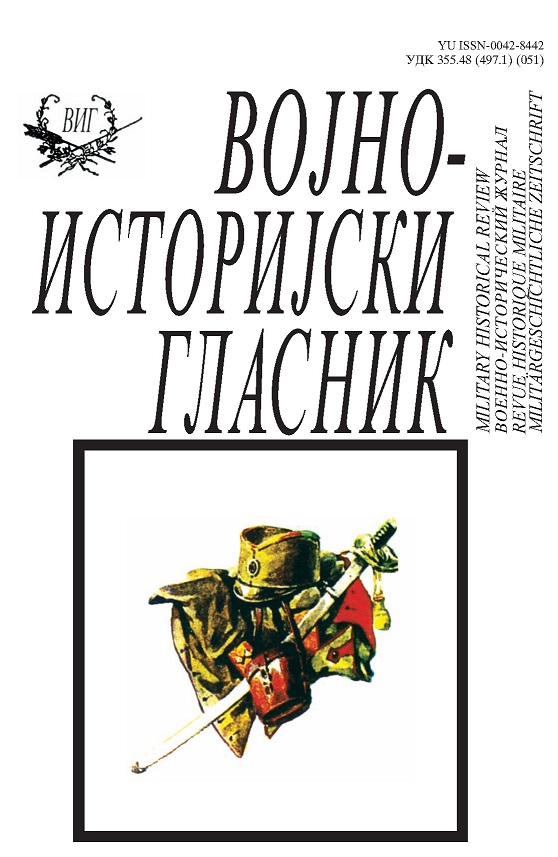„Ништа није радио већ седио и писао“ (Случај Милована Ђиласа у ЈНА 1954)
“He was Doing Nothing but Sitting and Writing” (The case of Milovan Djilas in JNA 1954)
Author(s): Milan TerzićSubject(s): Diplomatic history, Military history, Political history, International relations/trade, Military policy, Post-War period (1950 - 1989)
Published by: Institut za strategijska istraživanja
Keywords: Milovan Đilas; Yugoslav People’s Army; support; directives; diplomacy; military structure;
Summary/Abstract: The case of Djilas at this time is still an internal Yugoslav issue in relation to the subsequent events, and undoubtedly it resounded in the institution such an army. In particular, it shows the „case“ of the first officer of the army, the JNA Chief of General Staff, General Peko Dapcevic. It should be pointed out that Dapcevic remained on that position only by April of the following year, 1955, when he was demobilized. Thereupon he was member of the Yugoslav government (The Federal Executive Council - SIV), and after that he orientated towards diplomacy. Each army is organized on the subordination and hierarchical structure. In the JNA, which in its base had a strong ideological background that will remain even to the end of its existence and disintegration of the Yugoslav state (1992), insistence on the suitability in the command and hierarchical structure was the order of reality. The question is whether people with firmly adopted principles could in the army adapt to the military and, in it present, party activity? The case of Djilas shows that it was not possible despite the belief of individuals that uniform is not incompatible with criticism. Those who had firstly given support, after pressure and the party directives withdrew („they understood properly the conversation“). Only few of them maintained their attitudes. However, for them there was no place in the strict military structure. It should be pointed out that the case of Djilas appeared in "wrong time“, after Tito’s resistance to Stalin, when because of the possible invasion from the communist East the army insisted on strict discipline. Articles written by Djilas broke down that discipline, which in the management led by J. B. Tito, who still feared of possible attack from the East, provoked fears that this will negatively affect the internal unity and subvert Yugoslavia’s defense power. Personal relations between Tito and Djilas should be taken into consideration as well. Idea to „open“ political space for Djilas after the death of Stalin, when Tito benefited from his own victory, which launched him to the orbit of a world politics, never entered Yugoslav leader’s mind. It is particularly obvious that the individuals who „slip through“ in terms of IB with this new challenge (case of Djilas) made a new „offence“. Two „sins“, IB and Djilas, could not be forgiven. However, IB members and followers of Djilas are certainly not in the same boat.
Journal: Vojnoistorijski glasnik
- Issue Year: 2010
- Issue No: 2
- Page Range: 40-59
- Page Count: 20
- Language: Serbian

